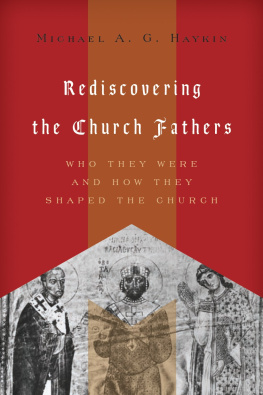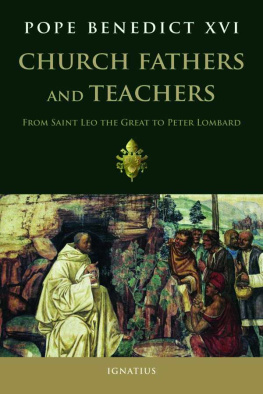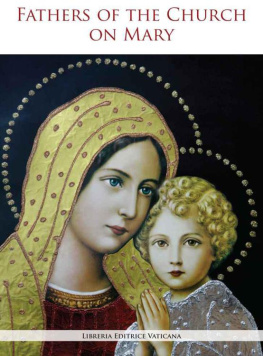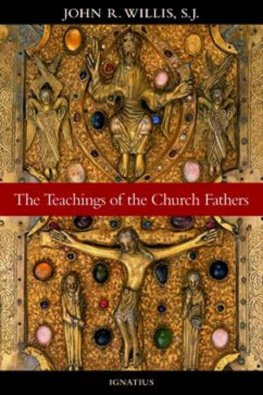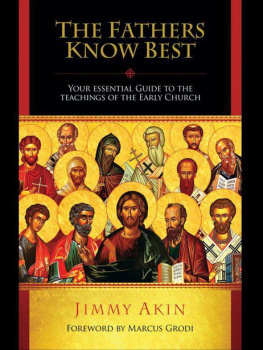Haykin has given us a user-friendly introduction to the early centuries of the Christian church. He illustrates the key elements of the churchs teaching by referring to the lives and teachings of major figures of the time, most of whom are little known to nonspecialists. Ordinary people need to know about these things, and this book is a great place to begin.
Gerald Bray, Research Professor of Divinity, Beeson Divinity School
This gem of a study sparkles with polished clarity. Michael Haykin has skillfully unearthed buried treasures among early church leaders. As an experienced guide, he has drawn from his own personal journey and decades of scholarly research. He presents valuable Patristic insights into apologetic engagement, missional work, spiritual formation, use of Scripture, theological discourse, communal worship, personal piety, and approaches to suffering and martyrdom. From the apostolic fathers to the apostle to Ireland, Haykins investigations masterfully apply classical wisdom to contemporary concerns.
Paul Hartog, Associate Professor, Faith Baptist Theological Seminary
In this introduction, Michael Haykin, an eminent evangelical scholar, opens the door to the riches of early Christianity for evangelicals in a splendidly concise handbook of sorts. Evangelicals, who are experiencing a renaissance of interest in the Fathers, need look no further than this volume for an introduction to many of the most significant figures in Christian history. Readers will be left wanting to learn even more. Evangelicals are indebted to Haykin for this well-written volume.
Steven A. McKinion, Professor of Theology and Patristics,
Southeastern Baptist Theological Seminary
Rediscovering the Church Fathers: Who They Were and How They Shaped the Church
Copyright 2011 by Michael A. G. Haykin
Published by Crossway
1300 Crescent Street
Wheaton, Illinois 60187
All rights reserved. No part of this publication may be reproduced, stored in a retrieval system, or transmitted in any form by any means, electronic, mechanical, photocopy, recording, or otherwise, without the prior permission of the publisher, except as provided for by USA copyright law.
Cover design: Tobias Outerwear for Books
Cover photo: Bridgeman Art Library
Interior design and typesetting: Lakeside Design Plus
First printing 2011
Printed in the United States of America
Unless otherwise indicated, Scripture quotations are from the ESV Bible (The Holy Bible, English Standard Version), copyright 2001 by Crossway. Used by permission. All rights reserved.
Scripture references marked NkjV are from The New King James Version. Copyright 1982, Thomas Nelson, Inc. Used by permission.
Trade paperback ISBN: 978-1-4335-1043-4
PDF ISBN: 978-1-4335-1044-1
Mobipocket ISBN: 978-1-4335-1045-8
ePub ISBN: 978-1-4335-2357-1
Library of Congress Cataloging-in-Publication Data
Haykin, Michael A. G.
Rediscovering the church fathers : who they were and how they shaped the church / Michael A. G. Haykin.
p. cm.
Includes bibliographical references and index.
ISBN 978-1-4335-1043-4 (tp)
1. Fathers of the church. 2. Church historyPrimitive and early church, ca. 30600. I. Title.
BR67.H39 2011
270.1dc22
2010045335
Crossway is a publishing ministry of Good News Publishers.
VP 22 21 20 19 18 17 16 15 14 13 12 11
14 13 12 11 10 9 8 7 6 5 4 3 2 1
To
R.Albert Mohler Jr.
Russell D. Moore
Bruce A. Ware
Donald S. Whitney
Gregory A. Wills
brothers, who, through their various roles of leadership, have given me the blessed privilege of teaching the church fathers to fellow Baptists at The Southern Baptist Theological Seminary
There can be no healthy theology
without a solid grounding in the Fathers.
EDWARD T. OAkES
If I had my time over again, I would have
studied patristics rather than [the] Reformation.
CARL TRUEMAN
A Vital Need for Evangelicals
Every scribe who has been trained for the kingdom of heaven is like a master of a house, who brings out of his treasure what is new and what is old.
MATTHEW 13:52
A few years after I had completed my doctoral studies in fourth-century pneumatology and exegesis and had started teaching at Central Baptist Seminary in Toronto, I came to realize that I would have to develop another area of scholarly expertise, for very few of the Baptist congregations with which I had contact were keenly interested in men like Athanasius (ca. 299373) and Basil of Caesarea (ca. 330379). At a much later date, when I had developed a keen interest in British Baptists and Dissenters in the longeighteenth century and was giving papers and lectures in this subject, I was increasingly conscious that while fare from this second area of study was quite acceptable to evangelical audiences, a cloud of suspicion hung over the whole field of the ancient church.
The truth of the matter is that far too many modern-day evangelicals are either ignorant of or quite uncomfortable with the church fathers. No doubt years of their decrying tradition and battling Roman Catholicism and Eastern Orthodoxy with their saintsfrom the ancient church have contributed in part to this state of ignorance and unease. Then, too, certain strains of anti-intellectual fundamentalism have discouraged an interest in that far country of church history. And the strangeness of much of that era of the ancient church has proven a barrier to some evangelicals in their reading about the early centuries of the church.Finally,an ardent desire to be people of the Bookan eminently worthy desirehas also led to a lack of interest in other students of Scripture from that earliest period of the churchs history after the apostolic era.Well did Charles Haddon Spurgeon (18341892)a man who certainly could not be accused of elevating tradition to the level of, let alone over, Scriptureonce note,It seems odd, that certain men who talk so much of what the Holy Spirit reveals to themselves, should think so little of what he has revealed to others.
Past Evangelical Interest in the Church Fathers
Thankfully, this has begun to change.
In the following century, the Puritan theologian John Owen (16161683), rightly called by some the Calvin of England, But a casual perusal of this treatise reveals at once Gills indebtedness to Patristic Trinitarian thought and exegesis, for he quotes such authors as justin Martyr (d. ca. 165), Tertullian (fl. 190220), and Theophilus of Antioch (fl. 170180).

